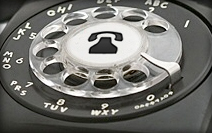Air sourced Heat pump hot water
What is an air-sourced heat pump?
Air-sourced heat pumps absorb heat from air and transfer it to heat water. They run on electricity but are roughly three times more efficient than conventional electric water heaters, so when used in the right environment they save energy, save money and reduce greenhouse gas emissions.
Heat pumps work on the same principle as your refrigerator, but instead of pumping heat out of the fridge to keep it cool, they pump heat into water. Electricity is used to pump a refrigerant around the system, which picks up heat from the air and transfers it to the water.
If a heat pump is right for you, choosing one will enable you to play your part in meeting the Australian government’s goal of adopting smart, efficient technologies to maintain our quality of life, at a lower cost to your budget and for the benefit of the environment.
How does it work?
An air-sourced heat pump works by absorbing heat from the outside air and transferring it to water in a tank. Like a water pump moves water uphill, a heat pump moves heat to where it is needed, in the hot water tank. The secret to making a heat pump work is the use of a refrigerant that evaporates at low temperatures. There are several steps in the process:
- Liquid refrigerant passes through an evaporator where it picks up heat from the air and becomes a gas.
- The gas refrigerant is compressed in an electric compressor. Compressing the gas causes its temperature to increase so that it becomes hotter than the water in the tank.
- The hot gas flows into a condenser, where it passes its heat to the water.
- The gas then flows into an expansion valve where its temperature drops and it returns to liquid form.
As long as the outside temperature is higher than the cold refrigerant the heat pump will absorb heat and be able to move it to the water. As the outside temperature decreases, this becomes more difficult, which is why heat pumps don’t work as well in places where temperatures are low.
A heat pump uses electricity to drive the compressor and the fan instead of using electricity to heat the water directly. The heat pump is able to transfer heat energy from the surrounding air to the water, which makes it highly efficient. How much heat is transferred depends on the ambient temperature.
For example, when air temperature is 15°C and the desired water temperature is 60°C, the heat transferred into the water is typically around 3 times as much as the electrical energy used. On a 30°C day, the heat energy transferred to the water is over 5 times the energy used by the system.
Electric Boost for Heat Pumps
Heat pumps may require an electric booster if operated in regions where it is cold. The electric boost turns on once the water temperature drops below a certain point.
Types of heat pump
There are two main types of heat pump:
- Integrated systems, where the heat pump and hot water tank are in a single unit, or
- Split systems, where the tank and the heat pump are separated.
Is it right for you?
Whether a heat pump is the best available choice for you depends on your particular circumstances. In addition, where and how the hot water appliance is installed can have a significant effect on the running costs and life span of the system. The following issues are all important considerations when deciding if a heat pump is the right hot water heater for you.
Do you have access to gas?
A heat pump is a good option for homes in suitable climates that do not have access to gas. If you do have a gas supply, then you may also want to consider installing an efficient gas water heater or a gas-boosted solar water heater.
What climate do you live in?
Heat pumps work most efficiently in warm, humid climates. They are not suited to installation outdoors in cold climates and where regular freezing or very cold and dry conditions are experienced. Some heat pumps are manufactured to work more effectively during brief frost conditions but they will cost more to run in these conditions and are not recommended for use in prolonged cold periods.
Note that some heat pumps may require an electric booster element if operated in regions where it is cold. The cost of running a heat pump may increase if it is required to boost during the day when electricity tariffs may be high. For further information talk to your plumber or electrician. Electricity tariffs differ across the states and territories. Ask your supplier about the heating specifications of the product you are considering. Contact your energy retailer to find out what tariffs may apply.
Could noise be an issue for you or your neighbours?
Heat pumps make a low humming sound, similar to a refrigerator or air conditioner. Noise levels can exceed 50 decibels (dB) at a distance of 1.5 metres, which is about the level of background noise in an average home. Properly located heat pumps are unlikely to cause noise problems, but some heat pump models could potentially breach noise regulations if located very close to a bedroom window or a neighbouring property. Try to choose a model with a low dB rating and locate the unit as far as possible from your bedroom and your neighbour’s bedrooms. Noise impacts can be further reduced by locating the heat pump at ground level and facing the condenser fan discharge away from living areas and bedrooms. Ask your supplier for advice on noise levels and how to locate the heat pump to minimise noise impacts.
How much hot water do you need and what tank size will you require?
Consider your hot water needs. How does your household use water? Do you all shower at the same time of day (e.g., in the morning)? Do you run a dishwasher connected to hot water? This will help you to decide on how much hot water you need, and the size of the tank required.
The exact size of the tank you need would vary according to the manufacturer. If the heat pump has a more powerful compressor, you could use a smaller tank. The tank size you need also depends on your climate – you can use a smaller heat pump and tank in a hot climate than in a cold climate. Commonly available tank sizes for heat pumps in mild climates are around 150L for 2 people; around 250L for 4 people; and around 300L for 6 people.
With an appropriately sized system and conservative water use, a heat pump should provide reliable hot water constantly. A few manufacturers include an electric booster element in case you run out, but this will lead to much higher electricity use because the booster works the same way as a standard electric water heater.
Locating your hot water system
Consider the locations you have for installing your heat pump. Will it be outside? Air-sourced heat pumps need plenty of fresh air and work best if placed outdoors. They can be used indoors but they need to be located in a well ventilated space where there is a constant supply of fresh air to provide the heat source while the cooled air they produce can be removed. Heat pumps should not be placed in a heated space because they cool the surrounding air and will have to work harder to keep the water warm. Is it replacing an older water heater and do you wish to use the existing plumbing for the new tank? For improved performance having your system installed closest to where you use the most hot water and keeping pipes as short as possible to minimise heat loss is an important consideration. Thinking about these questions can help you choose between an integrated system and a split system and how you should configure your heat pump.
Cost of installation
As well as considering the purchase costs and running costs of a water heater, the other question to ask is what are the installation costs of the new appliance? Also consider the warranties for the tank and other components. Have your system installed by a registered plumber and electrician, maintain it as required and have it serviced according to the manufacturer’s instructions.
You will also need to check with your installer and energy supplier which electricity tariff your appliance will be connected to and, if you are being taken off an off-peak tariff, what the additional costs of being on a higher tariff will be.
How do they compare with solar water heaters?
Heat pumps can work effectively during the night and in wet weather provided the air temperature is sufficient. Some models can continue to operate to temperatures below 0°C, though they will not achieve a very high level of efficiency. Heat pumps will operate most efficiently at higher air temperatures. Heat pumps can be a better choice than solar water heaters for locations with limited sunshine, providing that the temperatures are not consistently low. In locations with good year-round sunshine, a solar water heater that requires little boosting could use less energy.
Getting the most out of your heat pump
A well maintained heat pump, used in the right conditions, can give you trouble-free service. You should check regularly that the air vents around the evaporator are kept clean and clear of dust or leaves and other debris so air flow is not restricted.
Most tanks have a sacrificial anode, a piece of metal that protects the metal hot water tank from corrosion by attracting corrosion to itself. A licensed service person needs to check and replace the anode approximately every five years and should inspect other parts at the same time, checking the integrity of the refrigeration system and replacing pressure relief valves where required.
If you are going away you can safely switch your heat pump off. If it has been left on for longer than two weeks without drawing hot water, you should open a tap to run your hot water for a few minutes to release a small amount of hydrogen gas that might have built up in the tank. Make sure there is no flame or electrical spark nearby that could ignite the gas.
For more information or to book a Gas Technician or Plumber please contact us.


